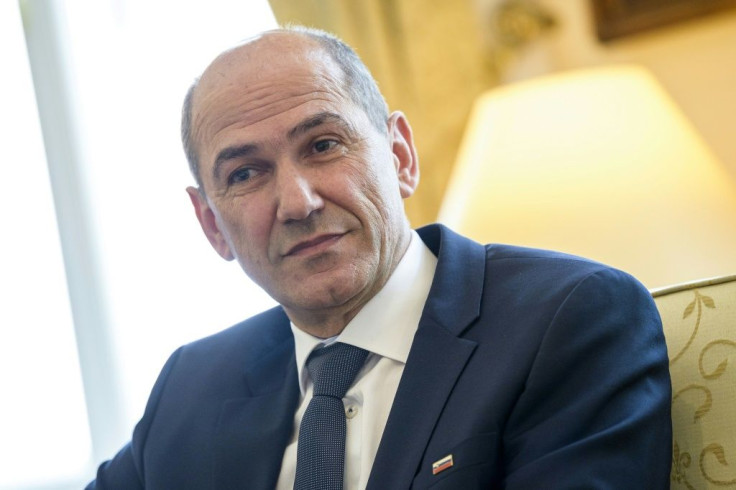Slovenia Anti-migrant Party Leader Nominated As PM

The leader of an anti-migrant party was nominated Wednesday as prime minister of Slovenia, setting him on track for a return to high office after a nearly seven-year absence.
Janez Jansa's Slovenian Democratic Party (SDS) announced on Tuesday that it had agreed with three other parties to form a coalition government.
The previous centre-left government fell in January when then premier Marjan Sarec stepped down amid infighting in his minority five-party coalition.
"I would like to thank our coalition partners for having had in mind the interest of the citizens and the common good of the state," Jansa told reporters after being nominated as premier by President Borut Pahor.
Parliament is yet to confirm Jansa's nomination, which is expected to happen next week. Pahor said the full government line-up is expected to be in place next month.
"I hope our collaboration will be constructive and for the benefit of our state and our people," Pahor said after the nomination.
A long-time leader of the anti-migrant SDS and ally of Hungarian nationalist Prime Minister Viktor Orban, Jansa led two previous governments before being forced to step down in 2013 over a corruption scandal.
He was given a two-year jail sentence for a bribery conviction, which was later overturned by the Constitutional Court, which ordered a retrial.
But that could not take place as too much time had elapsed.
The 61-year-old is known for his crowd-pleasing rhetoric and combative presence on Twitter, where he attacks opponents and established media alike, echoing the tactics of rightwing populists abroad.
For the new government coalition, SDS will partner up with centre-right Nova Slovenija (NSi) and outgoing junior coalition parties Modern Centre Party (SMC) and pensioners party DESUS, giving them a total of 48 out of the 90 seats in parliament.
SDS won the most votes in the last election in 2018, but Jansa failed to win over sufficient allies at that time, paving the way for political newcomer Sarec, a 42-year-old former comedian, to become Slovenia's youngest-ever prime minister.
Sarec, who had called for fresh elections, has warned its former allies against joining a coalition with SDS, claiming it would make the country "Orban's Slovenia".
Earlier this month, a Slovenian investigative website Necenzurirano published a report claiming it had documents proving Orban-linked companies had invested around 1.5 million euros ($1.6 million) in a Slovenia SDS-founded television and publishing house over the last two years.
The new coalition's programme includes additional funding to improve the health care system and increasing free kindergarten places.
The SDS, which had slammed the migrant policy of the previous centre-left governments, also included in the coalition agreement plans for more efficient border control, stricter implementation of asylum policies and the gradual reintroduction of a six-month military service, according to the Slovenian news agency.
The latest poll, published Wednesday by daily Dnevnik, puts public support for SDS on the rise, now at 19.9 percent, followed by outgoing Sarec's party LMS at 15 percent.
© Copyright AFP 2024. All rights reserved.




















